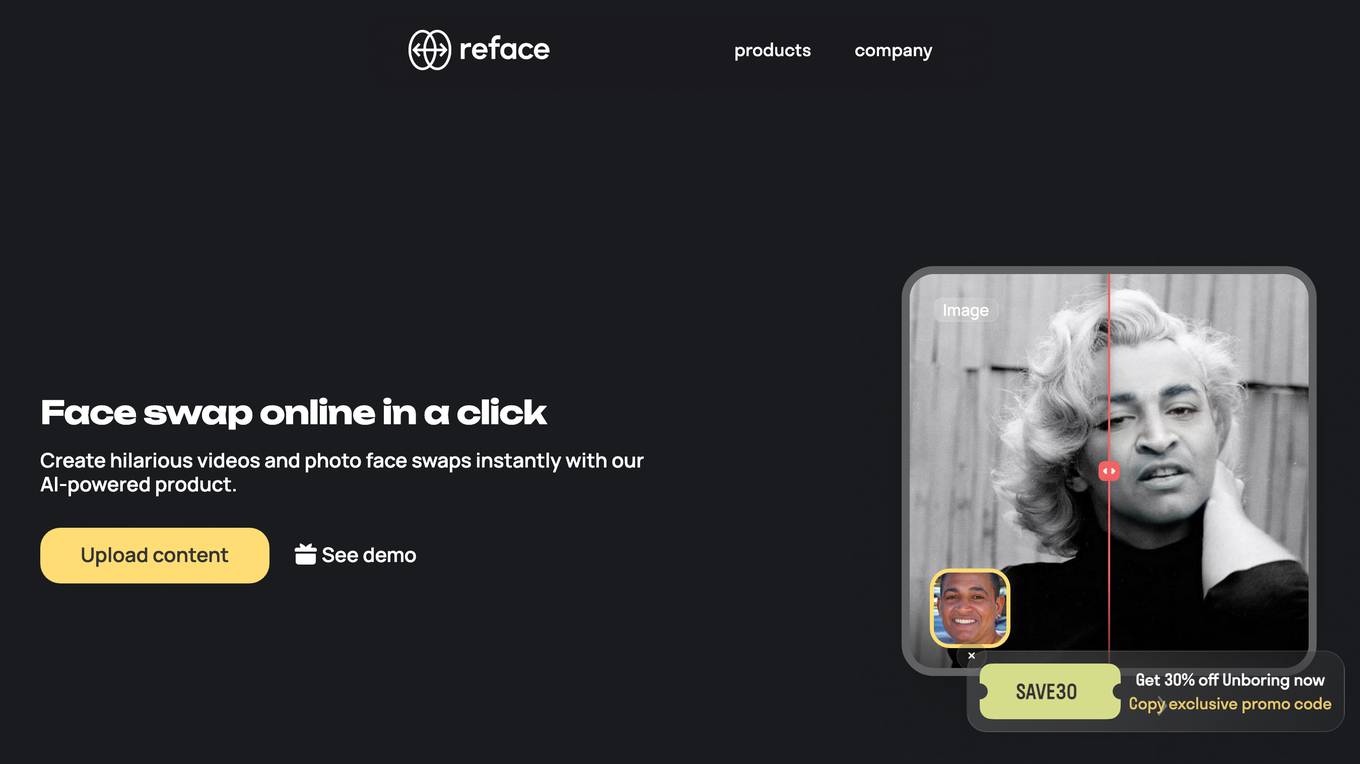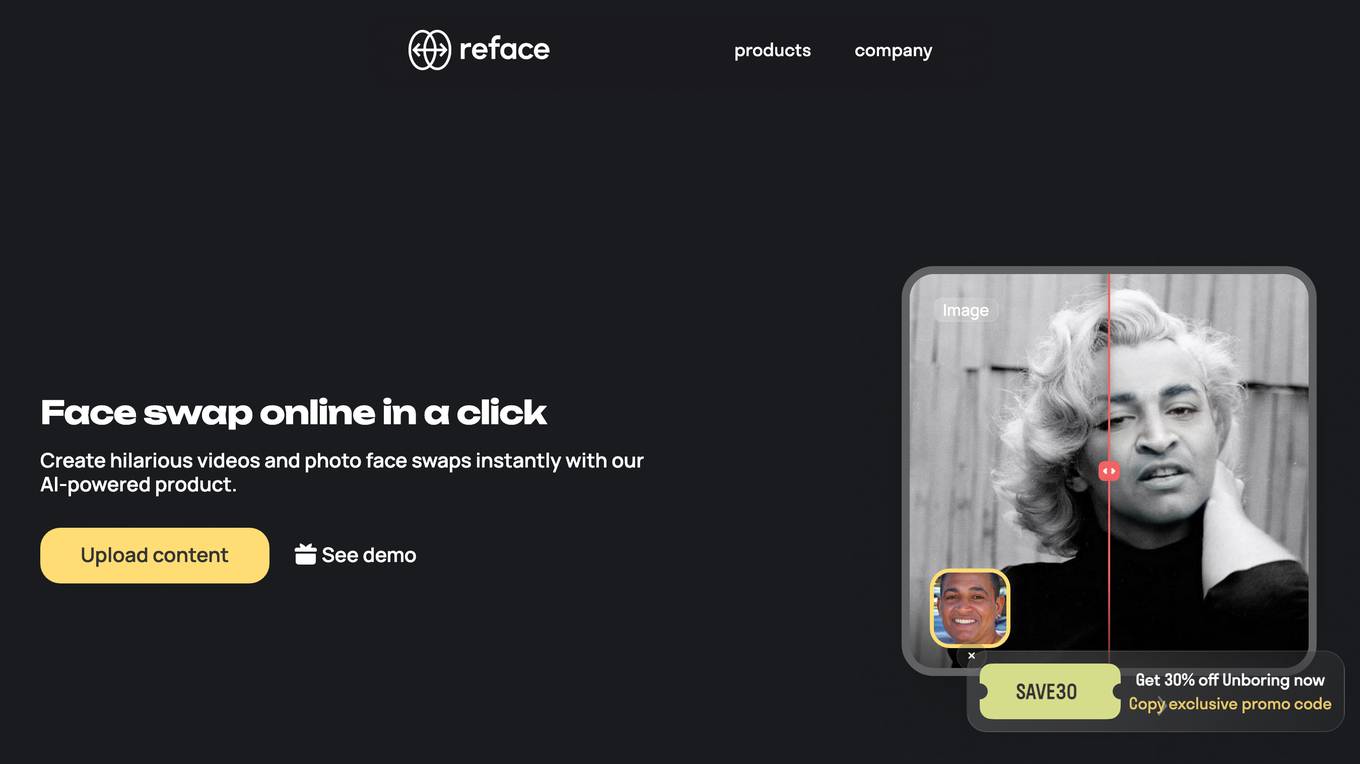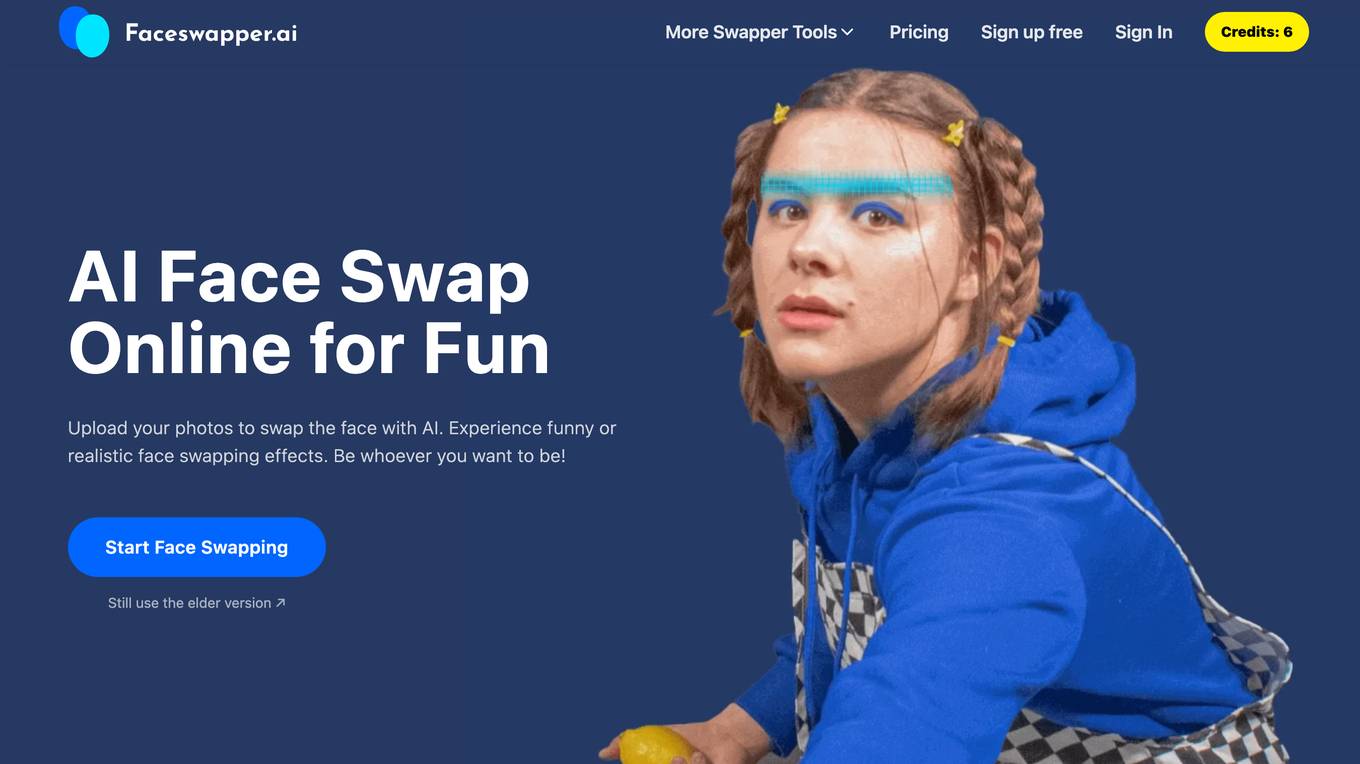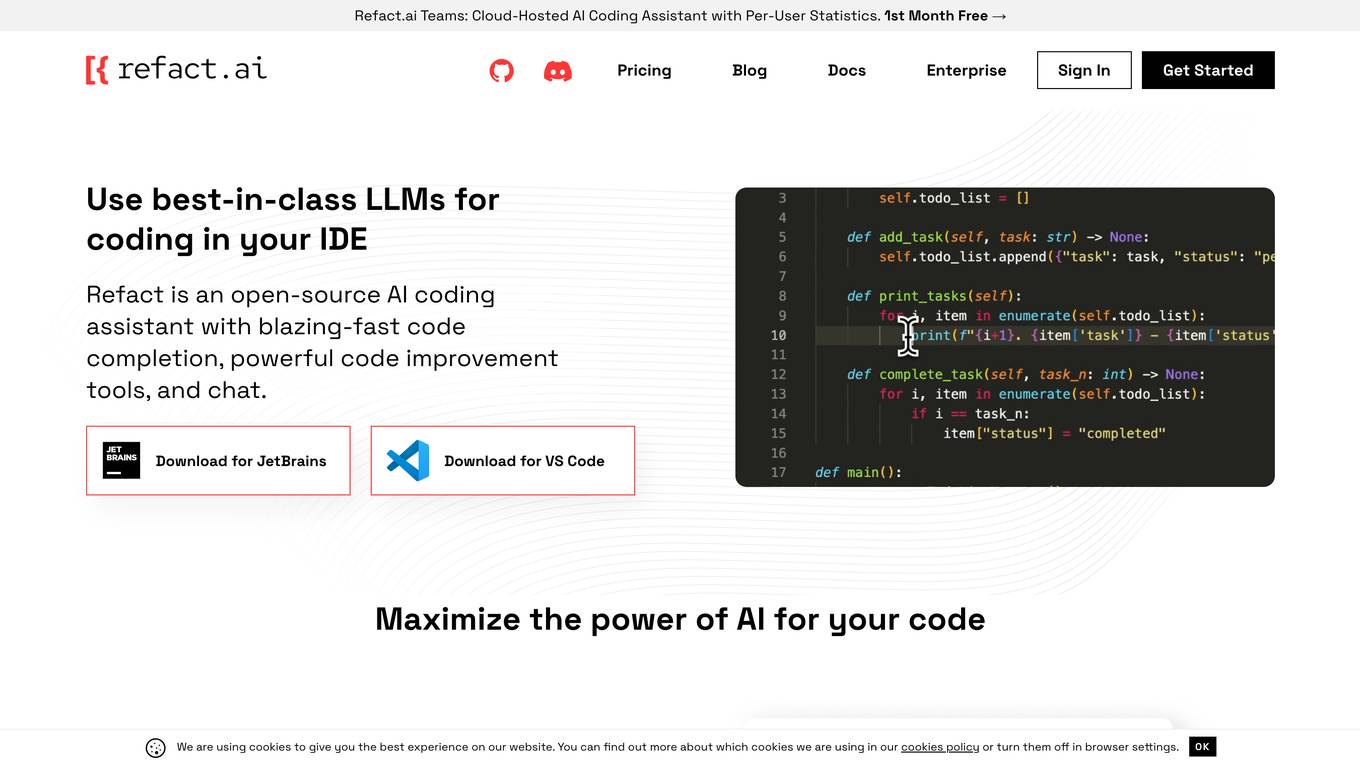Best AI tools for< Reface Content >
7 - AI tool Sites

Facy
Facy is an advanced AI-powered web service that allows users to effortlessly modify images and videos. The platform offers high-quality image and video customization with professional-grade results. Facy simplifies complex tasks, making pixel-perfect AI technologies accessible to everyone. Users can swap faces on images for free, reface videos, and enjoy secure and fast processing of their media content.

Reface
Reface is an AI-powered platform that offers a suite of tools for content creation, including face swapping, image and video editing, and meme generation. With Reface's user-friendly interface and advanced AI technology, users can easily create engaging and shareable content for various purposes.

Reface
Reface is an AI-powered content creation platform that offers a suite of tools for transforming photos and videos. With Reface, users can swap faces in videos, change the style of images and videos, animate face photos, try on outfits virtually, and create Ukrainian memes. Reface's mission is to make complex AI technologies easy to use for everyone, empowering content creators worldwide.

Unboring
Unboring is an online face swapping and photo animation tool that allows users to create funny and unique videos and images. With Unboring, users can swap faces, animate photos, transform videos, and restyle images. Unboring also offers a variety of AI-powered features, such as the AI Anime Filter, which can transform photos into anime-style portraits. Unboring is easy to use and requires no professional editing skills. It is available as a web app and as a mobile app for iOS and Android.

FaceMagic
FaceMagic is an AI-powered face swap app that allows users to create realistic face swap videos with just a selfie. With advanced face recognition technology and deep neural network processing, FaceMagic delivers astonishing face swap results in just a few seconds. Users can choose from a wide range of in-app resources or upload their own videos, photos, or GIFs to create custom face swaps. FaceMagic also allows users to swap multiple faces at a time, making it perfect for creating group face swap videos. The app is available on both iOS and Android devices.

FaceSwapper
FaceSwapper is a powerful online tool that allows users to seamlessly swap faces in photos and videos. It uses AI technology to create realistic and perfectly blended face swaps. The tool is user-friendly, secure, and offers various features like multiple face swap, clothes swap, and GIF face swap. Users can easily upload images, follow simple steps, and witness the magic of face swapping within minutes. FaceSwapper is ideal for creating funny memes, personalized videos, and entertaining GIFs.

Refact.ai
Refact.ai is an open-source AI coding assistant that offers a range of features including code completion, refactoring, and chat. It supports various LLMs such as GPT-4 and Code LLama, allowing users to choose the model that best suits their needs. Refact understands the context of the codebase using a fill-in-the-middle technique, providing relevant suggestions. Users can opt for a self-hosted version or adjust privacy settings for the plugin.